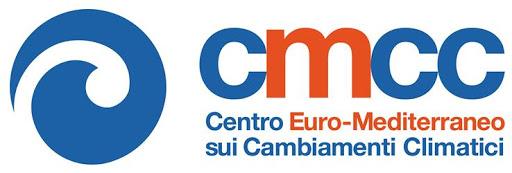- Expert(s)
- Giovanni Coppini, Simona Masina, Giulia Galluccio, Mauro Buonocore
- Website
- City
- Lecce
- Country
- Italy
- Type of member
- Other
- Type of member - other
- Non profit research institution
- Sea basin regions
- Black SeaInternational (other sea-basins / ocean)Mediterranean Sea
- Topics
- Climate and the oceanOther
- Topics - other
- The Human Ocean (including offshore farms (wind&solar), shipping&sailing, deep sea mining, submarine cables, seabed labs..)
- Environmental domains
- ClimateMarine/Ocean
- Main activities
- Marine Science / Research
The Fondazione Centro Euro-Mediterraneo sui Cambiamenti Climatici (Fondazione CMCC) is a non-profit research institution. CMCC’s mission is to investigate and model our climate system and its interactions with society to provide reliable, rigorous, and timely scientific results, which will in turn stimulate sustainable growth, protect the environment, and develop science driven adaptation and mitigation policies in a changing climate. CMCC collaborates with experienced scientists, economists, and technicians, which work together in order to provide full analyses of climate impacts on various systems such as agriculture, ecosystems, coasts, water resources, health, and economics. CMCC also supports policymakers in setting and assessing costs, mitigation, and adaptation policies. CMCC benefits from the extensive applied research experience of its members and institutional partners: Istituto Nazionale di Geofisica e Vulcanologia (INGV); Università del Salento; Centro Italiano di Ricerche Aerospaziali (CIRA S.c.p.a.); Università Ca’ Foscari Venezia; Università di Sassari; Università della Tuscia; Università di Bologna; Politecnico di Milano; Resources for the Future. CMCC research activities are distributed among nine research divisions that share different knowledge and skills in the field of climate science: Advanced Scientific Computing (ASC) Division; Climate Simulation and Prediction (CSP) Division; Economic analysis of Climate Impacts and Policy (ECIP) Division; Impacts on Agriculture, Forests and Ecosystem Services (IAFES) Division; Ocean modeling and Data Assimilation (ODA) Division; Ocean Predictions and Applications (OPA) Division; Risk Assessment and Adaptation Strategies (RAAS) Division; Regional Models and geo-Hydrological Impacts (REHMI) Division; Sustainable Earth Modeling and Economics (SEME) Division. CMCC acquired portfolio of research projects includes more than 383 funded projects: 37 projects in FP6 and FP7, 64 projects in H2020 and 282 projects under other EU and international research grants. In about a half of the implemented projects, CMCC acted as the coordinator. In 2019 the annual turnover was equal to 15,2M€ and 112 permanent staff have been working at CMCC. For further information on CMCC please see www.cmcc.it.The OPA Division deals with the development of models and methods for interdisciplinary research on marine operational forecasting, on the interactions between coastal areas and the open ocean, on the development of services and applications for all maritime economy sectors, including transport, security and management of coastal areas and marine resources, in the context of climate change adaptation problems.OPA contributes to several community models (https://www.nemo-ocean.eu/; www.visir-model.net Shyfem community model). OPA has developed coastal forecasting systems (http://sanifs.cmcc.it) and added value services (www.sea-conditions.com, www.visir-nav.com, www.ocean-sar.com/, www.witoil.com/).The ODA Division focuses on the development and validation of ocean circulation and biogeochemical models at global and regional scales (Mediterranean and Black Sea). Such models are used in several different applications, which go from stand-alone simulations in hindcast and forecast mode to coupled configurations in the CMCC Earth System Model (ESM). Variational data assimilation methods are applied to rebuild the evolution of the system during the period of time covered by the in-situ and satellite observations (ocean reanalysis) and to produce realistic oceanic initial conditions to be used in the initialization of models for short-term forecasting and climate predictions on scales from the seasonal to the decadal ones (this last application is in collaboration with the CSP Division). In particular, an important objective of the ODA Division is to develop oceanographic numerical models and data assimilation systems for the operational production of global and regional oceanographic analyses and forecasts at a very high resolution.The ODA Division coordinates the CMCC contribution to the the Nucleus for European Modelling of the Ocean (NEMO, https://www.nemo-ocean.eu/) Consortium, which is responsible of the development and reliability of the NEMO system and is also member of the Biogeochemical Flux Model (BFM, http://bfm-community.eu) Consortium with the aim to contribute to the development and dissemination of the BFM.OPA Division, in coordination with ODA Division, coordinates the European Copernicus Marine Environment Monitoring Service (CMEMS, http://marine.copernicus.eu/) Monitoring Forecasting Center for the Mediterranean Sea (http://marine.copernicus.eu/about-us/about-producers/med-mfc/) and develops and maintains the physical modelling part of the CMEMS Monitoring Forecasting Center for the Black Sea (http://marine.copernicus.eu/about-us/about-producers/bs-mfc/).

